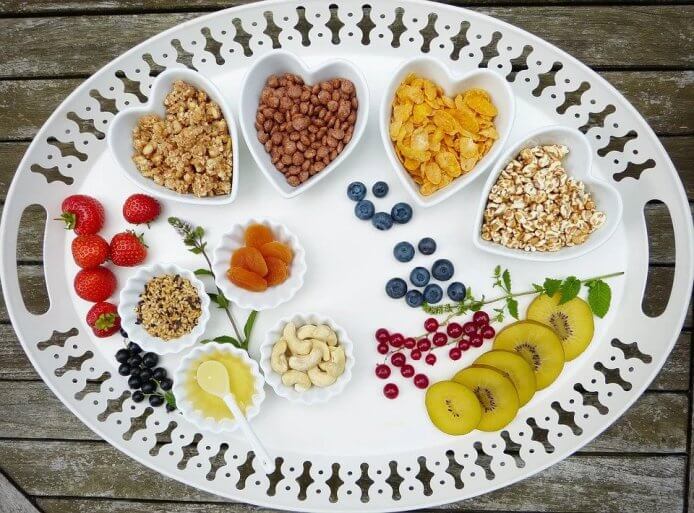What are the harmful foods for your metabolism?
The metabolism is one of those bodily processes that are surrounded by myths.
Many people make claims about metabolism and it’s functioning without having much idea of what they are talking about, so these misconceptions spread and become beliefs that take root in popular knowledge and that end up confusing or affecting people’s health who want to have a healthy eating style that allows them to get rid of excess weight.
Before you rush to join the clan of liquid detox fasters, read this article about foods harmful to metabolism.
It’s time to ground those beliefs and get accurate information about these processes so you can start using your new blender to eat healthy and have the figure you want.
What is metabolism?
Metabolism is the process the body uses to obtain energy and nutrients from the food you have eaten.
In this process, a series of chemical transformations take place that will allow obtaining energy, in addition to taking nutrients and converting them into materials that will serve for cell growth and repair, in addition to regulating other processes that allow vital functions.
For this reason, metabolism is a constant process, as the body requires energy to maintain temperature, in addition to heart function, lungs, among others.
The amount of energy required to keep the body functioning at rest is called the Basal Metabolic Rate (BMR). If you consume more energy than the body requires to function, then the body will be forced to store the excess in the form of fat; producing overweight.
The goal of diets is to play a little with the amount of “fuel” you give to the body. If you give him less than he is used to and you force him to need more energy with exercise, then he will be forced to look for the remaining one in the fat reserves, producing weight loss. It is a simple process, at least from this perspective.
The hard part is changing eating habits and this is why people look for shortcuts, such as diet and food myths that affect metabolism.
Some myths about metabolism
There are foods that speed up the metabolism
This is a big lie. Food has a caloric and nutritional load that will be absorbed and/or used by the body.
There are no foods that significantly affect metabolic rate, and while foods such as caffeine, hot chili, and green tea are said to speed up metabolism, there is no conclusive evidence that this is true.
Check Also: Beenfits of green tea
Getting older slows your metabolism
There may be a decrease in energy requirement because our body is no longer constantly growing and rebuilding, but this is not significant and it will not make you gain weight.
People get fat when they reach middle age because they adopt sedentary habits. By moving less, lose muscle and accumulate fat.
Growing muscle mass speeds up metabolism
While it is true that working muscles consume more energy than fat, this occurs when strength exercises are done on a regular basis, mainly because this requires that the muscle rebuilds to continue growing.
Having more muscle mass will not make a big difference in your basal metabolism, as much of it is consumed by the respiratory, cardiac and nervous systems.
The time you eat affects your metabolism
Eating at night or eating carbohydrates at night does not affect metabolism.
What affects the way you gain weight is how much you eat and what you eat, not when you do it.
Eating several small meals is better than eating at once
The only benefit of eating several small meals throughout the day is that it can make you feel more satisfied and therefore you will eat less and reduce the amount of calories you consume.
The best is to eat when the body asks for it through the hunger reflex, this varies in each person.
See Also:
List of foods harmful to metabolism
Fasting and restrictive diets
Food, alone, does not have a significant impact on an individual’s metabolism.
What could make a change is the way and frequency in which you consume them or stop doing it; because prolonged fasting or very restrictive diets have a negative effect on your metabolism, as it causes you to go into saving mode.
Your body is used to receiving a certain amount of food/energy. When you stop giving the same amount, either because you make an abrupt reduction or because you stop eating, at first you will lose some weight but then your metabolism goes into saving mode; that is, it will spend the minimum necessary energy to better manage the reserves.
This produces the well-known yo-yo or rebound effect that accompanies strict diets.
Fast food and ultra-processed foods
Eating processed foods has a devastating effect on your body, because they are hyper-caloric, rich in fats and sugars, which fill you up for a very short time, make you overeat and become addictive.
Not only you consuming extra calories, but the changes in insulin and cortisol they produce can lead to type II diabetes, which is a serious metabolic disease.
What can I do to improve my metabolism?
Eat natural food and avoid foods that are harmful to your metabolism
Avoid ultra-processed foods, which have too much fat, sugar and extra calories.
Natural food, prepared at home using fresh ingredients, has all the nutrients your body requires, it is delicious, it will make you feel full for longer and will not affect your body’s insulin production.
Avoid drinking soda and packaged juices
Water is the best drink and the only one your body needs. If you want something with more flavor, for a snack or breakfast, prepare your fruit and vegetable smoothies, using quality ingredients and without sugar or using very little.
You will consume the daily servings of fruits and vegetables that you require, you will stay fresh and your diet will have more fibers and vitamins.
Exercise
It sounds a bit obvious, but increasing the amount of energy your body uses will cause you to burn more calories.
If you do resistance exercise (weights and similar) you will not only be creating more muscle mass, but you will increase your basal metabolism by giving it the extra task of building new muscle.




